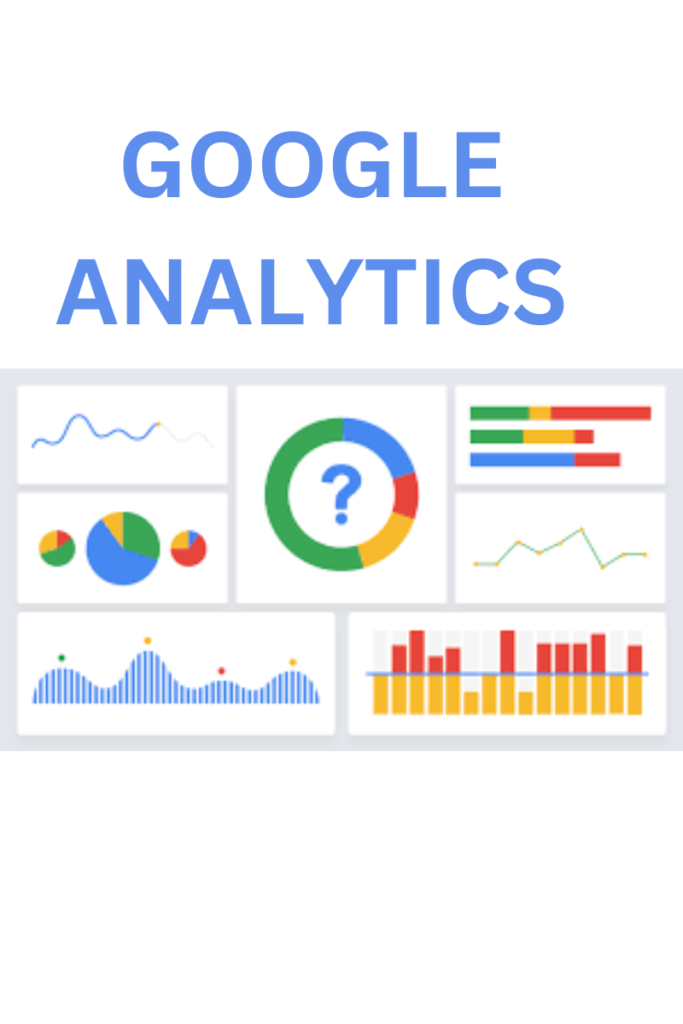Google Analytics is a powerful tool provided by Google that enables website owners and marketers to analyze the performance of their websites. It offers a comprehensive suite of features that help track and understand visitor behavior, website traffic, and the effectiveness of marketing campaigns. Here’s a detailed overview of Google Analytics and its key components:
Introduction to Google Analytics
Google Analytics is a web analytics service that tracks and reports website traffic. Launched in 2005, it has become the most widely used web analytics service on the internet. It helps businesses understand how visitors interact with their website, which pages are most popular, where traffic is coming from, and much more.

read more about digital marketing and google analytics
Key Features of Google Analytics
1. Real-Time Data
Google Analytics provides real-time data, allowing you to see how many visitors are on your site right now, where they are coming from, and what pages they are viewing. This feature is particularly useful for monitoring the immediate impact of marketing campaigns or breaking news events.
2. Audience Reports
Audience reports give you insights into the demographics, interests, and behavior of your visitors. You can see data on the age, gender, and location of your audience, as well as their interests based on their online behavior.
3. Acquisition Reports
These reports show how visitors are finding your website. You can see which channels (e.g., organic search, paid search, social media, email, direct traffic) are driving the most traffic. This information is crucial for understanding the effectiveness of your marketing efforts.
4. Behavior Reports
Behavior reports provide insights into how visitors interact with your website. You can see which pages are most popular, how users navigate through your site, and how long they spend on each page. This helps identify areas for improvement in user experience and content strategy.
5. Conversion Tracking
Conversion tracking allows you to measure how well your website is achieving its goals. You can set up goals to track specific actions such as form submissions, purchases, or sign-ups. This feature helps you understand the ROI of your marketing campaigns and optimize your conversion funnel.
6. E-commerce Tracking
For online retailers, Google Analytics offers e-commerce tracking, which provides detailed information about product performance, sales, and revenue. You can track metrics such as total revenue, average order value, and conversion rate, and see which products are most popular.
Setting Up Google Analytics
1. Create a Google Analytics Account
To get started with Google Analytics, you need to create an account. Go to the Google Analytics website and sign in with your Google account. Follow the instructions to set up a new property for your website.
2. Add Tracking Code to Your Website
Once your account is set up, you will receive a tracking code. This code needs to be added to every page of your website that you want to track. Most website platforms, such as WordPress, have plugins or settings that make it easy to add this code.
3. Configure Goals and E-commerce Tracking
After adding the tracking code, you can configure goals and e-commerce tracking in your Google Analytics account. This involves setting up specific actions you want to track and ensuring your e-commerce platform is integrated with Google Analytics.
Advanced Features and Integrations
1. Custom Dashboards and Reports
Google Analytics allows you to create custom dashboards and reports to focus on the metrics that matter most to your business. You can use pre-built templates or create your own from scratch.
2. Google Tag Manager
Google Tag Manager is a tool that allows you to manage and deploy marketing tags (snippets of code) on your website without having to modify the code directly. It integrates seamlessly with Google Analytics and other third-party tools.
3. Integration with Other Google Services
Google Analytics integrates with other Google services such as Google Ads, Search Console, and Data Studio. This enables you to combine data from different sources and get a more comprehensive view of your online performance.
4. Enhanced Ecommerce
Enhanced Ecommerce provides deeper insights into the shopping behavior of users on your website. It allows you to track product impressions, clicks, and transactions, and analyze the entire customer journey.
detail information about google analytics
Conclusion
Google Analytics is an essential tool for any business with an online presence. It provides valuable insights into your audience, traffic sources, user behavior, and conversion performance. By leveraging the features and capabilities of Google Analytics, you can make data-driven decisions to improve your website, optimize your marketing efforts, and achieve your business goals.
Whether you are a small business owner, a marketer, or a web developer, understanding and utilizing Google Analytics can help you gain a competitive edge in the digital landscape.
